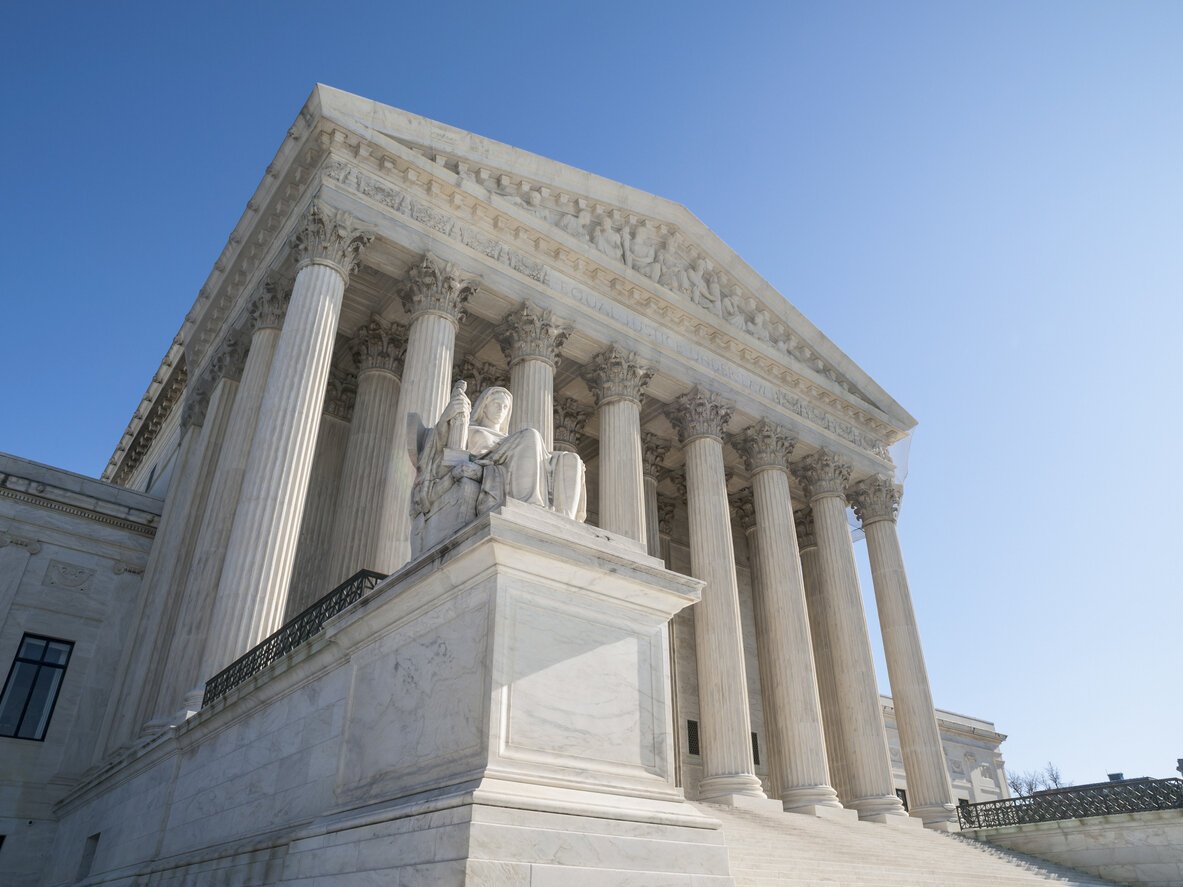Supreme Court to Reconsider Chevron
Armed with the account identifiers, the Federal Bureau of Investigation (FBI) sought search warrants requiring Facebook to disclose various records and voluntarily disclosed information.
Supreme Court to Consider Petition for Writ of Certiorari to Clarify the Parameters of an Excessive Force Claim
Armed with the account identifiers, the Federal Bureau of Investigation (FBI) sought search warrants requiring Facebook to disclose various records and voluntarily disclosed information.
Sixth Circuit Holds that Suspicionless Chalking Car Tires for Parking Enforcement Violates the Fourth Amendment
Saginaw, a city in Michigan, chalked car tires to enforce parking regulations. Recently, the U.S. Court of Appeals for the Sixth Circuit considered whether suspicionless tire chalking is a valid administrative search.
Seventh Circuit: Warrantless Public Pole Camera Surveillance Is Not An Unlawful Search Under The Fourth Amendment
From 2013 to 2016, several law enforcement agencies investigated a methamphetamine distribution conspiracy in Illinois. The government installed three cameras on nearby utility poles to monitor the home of defendant Travis Tuggle. Two cameras viewed the front of Tuggle’s home and a nearby parking area. The third camera viewed a shed owned by codefendant, Joshua Vaultonburg.
Seventh Circuit: Facebook’s Reporting of Child Pornography Does Not Make It a Government Actor
In 2018, Alexander Bebris sent messages to a woman via Facebook Messenger, a private messaging system on Facebook. Facebook Messenger utilizes PhotoDNA, a Microsoft image-recognition program that provides the capability to scan images uploaded onto the company’s platform and compares the “hash,” or essence of a photo, with a database of known images of child pornography. After a “hit,” Facebook reviews the flagged images and sends them to the National Center for Missing and Exploited Children (“NCMEC”) through the CyberTipline.
Prolonged Warrantless Monitoring From Pole Cameras Not A Fourth Amendment Violation, Seventh Circuit Decides
Using three pole cameras mounted on public property to continuously monitor the exterior of a defendant’s home for 18 months without a warrant is not an unreasonable search in violation of the Fourth Amendment, according to the Seventh Circuit.
Eighth Circuit: Automobile Exception Applies to Temporarily Immobile Vehicles
On April 16, 2019, Des Moines police officers responded to various calls of gunshots fired at an apartment complex. The callers reported 3 potential suspects and 2 cars associated with those suspects. One caller described a suspect as a black male with dreadlocks in a white shirt and dark blue pants, a description fitting Shaun Short that evening. Callers also reported that one of the cars involved was a black Dodge Charger, the same make and model car owned by Short.
Supreme Court Holds That Officers’ Pursuit of a Fleeing Suspected Misdemeanant Does Not “Categorically” Justify Warrantless Entry to the Home
Yesterday, in an opinion authored by Justice Kagan, the Supreme Court issued an order on United States v. Lange, and held that the flight of a suspected misdemeanant does not always justify the warrantless entry of a police officer into a home. FEDagent previously reported on this case when the Court granted certiorari.
Tenth Circuit Finds Probable Cause to Enter Defendant’s Trailer and Execute Arrest Warrant
On August 1, 2013, FBI Special Agent Bryan Acee was undercover and observed Matthew Maley engage in a drug deal out of his travel trailer in an RV park in Las Cruces, NM. Acee also observed a green Range Rover and a black Dodge pickup truck nearby. Officers performed a background check on Maley and found that he was a convicted felon on probation.
“Community Caretaking” Alone Does Not Justify Warrantless Home Entry, Supreme Court Holds
“Community caretaking” does not create a standalone doctrine that justifies warrantless searches and seizures in the home, a unanimous Supreme Court recently held.
Sixth Circuit: Continuous Drug Dealing Operations Alone Justified Warrant to Search Residence
In 2007, the Louisville office of the Drug Enforcement Administration (DEA) conducted an investigation which led to the seizure of drugs and money and the convictions of Byron Mayes and brothers Julio and Alfredo Rivas-Lopez. Flash forward to 2016, and all three drug dealers were out of prison.
Seventh Circuit: Independent Grounds Needed to Prolong a Pretextual Stop
On June 25, 2018, Illinois State Trooper Clayton Chapman was on highway patrol duties and received a message from Deputy Sheriff Derek Suttles about a hatchback with a California license plate on Interstate 72. Deputy Suttles reported to Trooper Chapman that the vehicle was going approximately 20 mph under the speed limit, and found it suspicious.
Officer Who Used Suspect as ‘Human Shield’ Entitled to Qualified Immunity, Seventh Circuit Holds
An officer who held his gun to a suspect’s head, while using the suspect as a “human shield,” was entitled to qualified immunity because the officer’s conduct did not violate clearly established law, the Seventh Circuit recently held.
Supreme Court Considering Whether “Community Caretaking” Allows Warrantless Home Entry
The Supreme Court last week heard oral argument on whether the “community caretaking” exception allows law enforcement to enter a home for the purposes of the occupant’s health and safety.
First Circuit: Warrant or Reasonable Suspicion Not Needed for Basic Border Searches of Electronic Devices
Plaintiffs, ten U.S. citizens and one lawful permanent resident, brought suit against the Secretary of the U.S. Department of Homeland Security (DHS) Kirstjen Nielsen, Acting Commissioner of the U.S. Customs and Border Protection (CBP) Kevin McAleenan, and Acting Director of U.S. Immigration and Customs Enforcement (ICE) Thomas Homan, alleging that certain CBP and ICE policies and practices violated their Fourth Amendment rights.
Fifth Circuit: No Fourth Amendment Standing in Another Person’s Cell Site Location Information
While conducting a narcotics investigation, the Monroe Police Department learned from drug dealers and cooperating witnesses that Matthew Beaudion and his girlfriend, Jessica Davis, were distributing drugs. Officers obtained Davis’s phone number from one witness. The witness also told the officers that Beaudion and Davis planned to drive from Houston to Monroe with four pounds of meth.
Fifth Circuit: Briefly Examining Mailing Label Is Not Fourth Amendment ‘Seizure’
Temporarily removing a package from mail processing to examine its exterior does not constitute a Fourth Amendment seizure, the U.S. Court of Appeals for the Fifth Circuit recently held.
DOJ Concludes Investigation into Massachusetts Narcotics Bureau with Findings of Constitutional Violations
The Department of Justice announced its findings relating to an investigation into the Narcotics Bureau of the Springfield, Massachusetts Police Department (SPD) this week. The DOJ found reasonable cause to believe the bureau engaged in a “pattern or practice of using excessive force in violation of the Fourth Amendment to the United States Constitution.”




















